In this day and age, it’s often all too easy to complain about the problems plaguing social networking sites, overpriced computers, and the lack of viable applications available amongst various smartphones. It’s important, however, to remember where we came from and acknowledge how far technology has come.
Before you throw your keyboard at the wall after your next Firefox crash, take a deep breath and try to imagine a time before browsers even existed… a time before websites existed. Allow us to take you on a stroll down memory lane and put it all in perspective.
1. Computers
Given the variety of computers that have been invented throughout the years, there are multiple computers that can claim the title of “first” in their respective categories. The first programmable computer, however, was created between the years of 1936 and 1938 by Konrad Zuse in Germany. In typical nerd fashion, Zuse crafted the computer in his parents’ basement, naming it the Z1. The Z1 clocked in with a speed of 1 Hz, and was able to hold 64 words worth of memory. That’s right, the Z1 couldn’t even store this entire paragraph. Pretty crazy, right?
2. The Internet
The internet as we know it today was first created by Robert Kahn and Vinton Cerf in 1983. On January 1st, 1983, Kahn and Cerf launched the first TCP/IP network. Two years later, the first 56k network hit, and later became commercially available in 1988. Tim Berners-Lee, a British scientist working for CERN, invented the World Wide Web in 1989. The web came to fruition in 1991 when CERN made the World Wide Web project public. Before Chrome, Firefox, and even Internet Explorer, the web was accessible only using the ViolaWWW browser, which was eventually replaced by the Mosaic browser. Throughout the 90s, the internet experienced usage increases of over 100 percent each year as it became more commercially viable. As of December 31st, 2009, there are now 1.8 billion internet users worldwide — all of which are thankful for broadband.
3. Webpages and Websites
With the dawn of the World Wide Web came the existence of websites. The first webpage hit the web towards the end of 1990: http://nxoc01.cern.ch/hypertext/WWW/TheProject.html. While the page no longer exists, you can still view an original copy of it at W3.org. After CERN announced that the web would be free for anyone to use in April of 1993, the number of websites across the web skyrocketed. The first webpages and websites make even the most laughable designs from 1998 seem extremely advanced.
4. Personal Computers
The term “personal computer” was given to us by Ed Roberts in 1975 when he unveiled the Altair 8800. While Roberts coined the term, the Kenbak-1 was the first computer that fell under the category of personal computer. The Kenbak-1 first hit the market in 1971, and carried a $750 price tag. Using a string of switches and lights, the computer was capable of inputting and outputting data. Sure makes you thankful for your keyboard, eh?
5. Laptops
The Osborne 1, developed by Adam Osborne in 1981, secured its place in history as the first portable computer to be commercially available. While touted as the first portable computing device, the Osborne 1 wasn’t exactly, well, portable. Weighing in at 23.5 pounds, the bulky computer makes even the most hardware intensive Alienware laptop seem as light as air. With a hefty price tag of $1,795, the Osborne 1 wasn’t exactly a hit. The Osborne Computer Company went bankrupt just two years later after introducing the Osborne 1’s predecessor, the OCC-2.
6. Social Networking
Next time you feel the urge to bash Facebook and Twitter, take a second to recall a time when neither were even conceivable. While the web had existed for years, the first distinguishable social networking site wasn’t created until 1997. That site was SixDegrees.com. Using SixDegrees, internet users worldwide were able to create profiles. A year later, the site would begin to allow users to browse friend lists. While other communities had allowed users to create profiles at the time, SixDegrees was the first site that brought together various features to create a social networking site as we define it today. From SixDegrees, to LiveJournal, to MySpace, and now Facebook and Twitter — social networking has advanced to a point never previously imagined.
7. Computer Games
Created in 1962 by a MIT computer programming team led by Steve Russell, Spacewar went down in history as the first computer game. Spacewar was a multiplayer space-themed game which allowed players to battle to the death using spaceships armed with torpedoes. While it was a far cry from Starcraft, Spacewar could be found on almost every computer in existence at the time. Next time your frustration peaks while playing your favorite game, head on over to Zorg.org to play Spacewar, and you’ll gain a new appreciation for just how far computer gaming has come.
8. Smartphones
Before there was an app for “that,” there wasn’t an app for that. Believe it or not, the first smartphone was created by IBM in 1992. The phone, name Simon, was first shown at COMDEX as a concept. In 1993, the phone hit the market, and was made publically available by BellSouth. A far cry from the apps we’ve all come to know and love today, Simon boasted exciting applications such as the calculator, calendar, world clock, and notepad. Interestingly, the phone was able to send e-mails and had a couple of games available. Another interesting point is the fact that Simon was operated by using a touch screen, which would not become common amongst cell phones until years later. Androids and iPhones are cool, but let’s give credit where credit is due — Simon is where it all started.
9. MP3 Players
Replacing the now rarely used portable CD player, the first MP3 player was created by the company Audio Highway. The player, named Listen Up, was announced in September of 2006 and hit stores in January of 1997. The MP3 player ended up winning the People’s Choice Award in 1998, and featured a storage capacity of 32MB — approximately six songs. 13 years later, I think it’s safe to say that we’re all thankful for 160GB iPods.
What was the first computer that you owned? First smartphone? Laptop? Leave a comment and let us know.

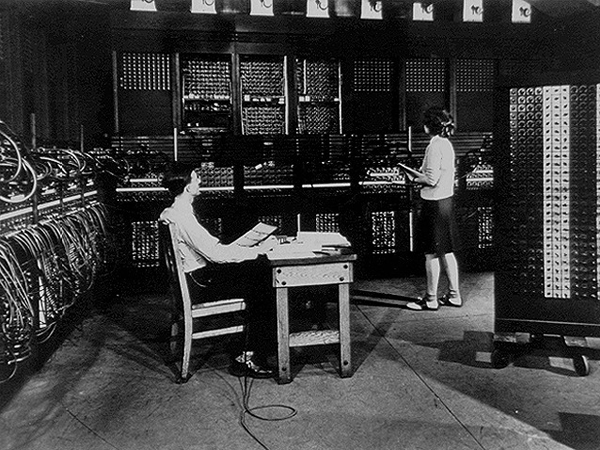
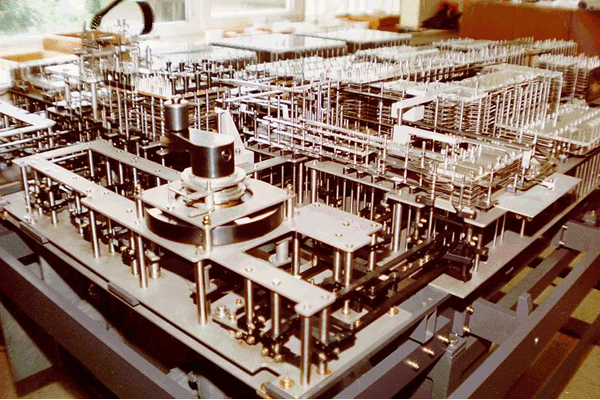
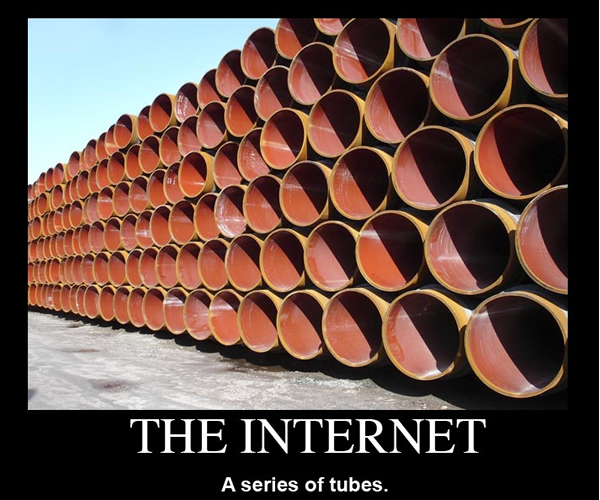

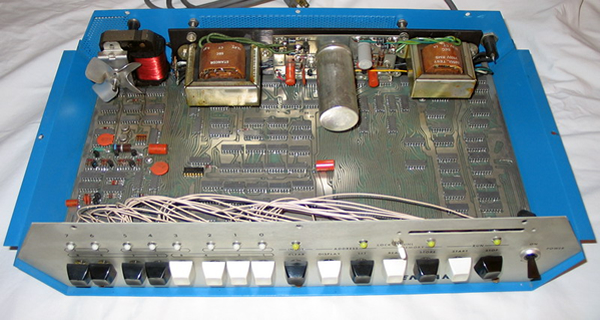
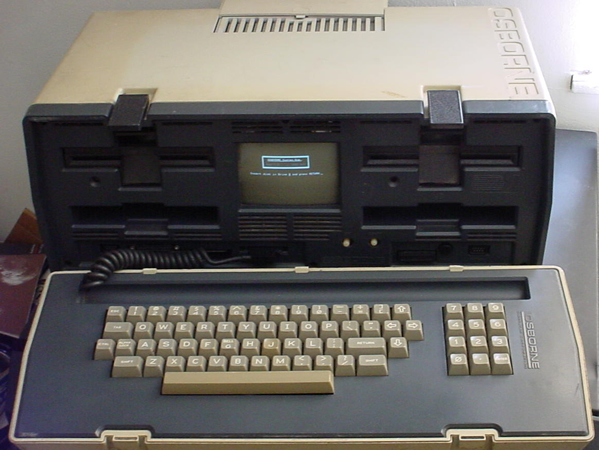

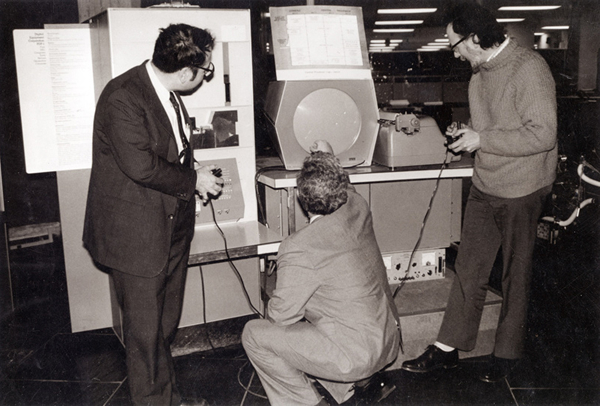

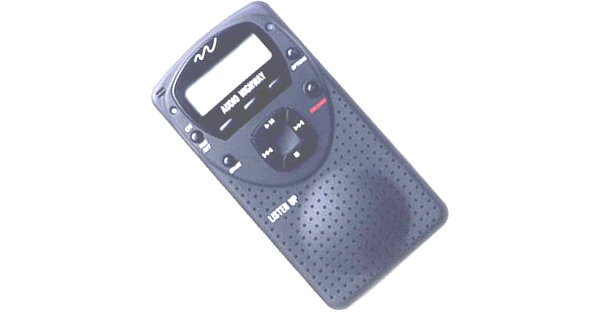
Typo, Audio Highway announced the Listen Up in 1996.
Glad I wasn’t the only one who spotted that.
Nice list of technology from days of yore to help us feel more grateful for the fantastic technology we have today. Long may technological progression continue!
I owned and built the Altair in Australia just after the launch. That particular example is in the Computer Museum in Canberra now.
I also built the prototype EDUC-8 for Dick Smith Electronics – from all descrete ICs !!
Some serious flashbacks here !!
An Atari 65XE, with cassete recorder, and a daisy wheel printer.
Nice read! Thanks for coming up with this one.
First computer was a Compaq one, First music player was a Sony Walkman, then a Sony Discman.
The most important tech invention of all was omitted: the transistor by Bardeen, Shockley and Brattain. Without the transistor and integrated circuits personal computers and cell phones as we know them would have been impossible. Integrated circuits are in refrigerators, cars, watches, credit cards: you name it. Along with atomic energy and pharmaceuticals, semiconductors have defined our society as we know it today.
First computer? TRS80 Color Computer II. With cassette recorder.
First Computer was the good old Commodore 64. First Computer game for that computer was Kareteka. Three “punches” and three “kicks” and hours of fun.
As far as personal computers are concerned, the Commodore Vic-20 & the 64 brought computing to the masses. All the kids in my “non-affluent, blue collar” neighborhood had them. Writing programs in basic back then seemed so cool.
First computer was a Comodore 64. We had no idea of what to do with it. Everything had to written in code, which sucked. We had to buy a floppy drive seperately. These were the real floppys. They had to formated to save onto them, which we never figured out how to do either.
An imsai 8080 was out first computer.
My first computer was a TI 96a. No hard drive only 16k total memory unless you added a portable cassette recorder or the optional 5 1/4″ floppy drive.
But with “true” basic programming, all you needed was “if” or “then”.
But if we really want to speak about tech that started it all, Where would we be without Ben Franklin and his kite?
I still have my Televideo 64k memory 2 floppy diskette drive, z80 machine. My cell phone has more memory!!!
Yeah i still remember my Commodore64 Computer ,We use to play Games and some small BASIC programming on that , i still have that Device with me
We should credit Al Gore as being the Senator who saw the potential early on and thus was able to get congressional funding for the further development of the Internet back when most of us had never heard of it.
I used my older Brothers TRS-80 with a cassette drive. He also at one point oned a portable compaq very similar to the osborne 1. They cool thing he showed me was the game load runner. Of course in my college days I spent a great deal of time playing Moria on a DEC. The game even had cheat codes…..
First computer was the original apple mac. First cellphone was AT&T.
Commodore 64 with Disk Drive and Monitor – – First game “typed” in was Nevits.. a simple top “scroller” .. Tried to save it and the drive was defective… I didn’t want to lose it so I played Nevits for two weeks before getting a replacement disk drive in the mail…
I keep my first laptop just to keep that one thing from the past. Its fun to see just how far things have come. It has a hole 32mb of RAM and a 4gb HD. If I take my first laptop,cellphone and mp3 player they still cant do more than my Phone! (Sprint Hero)
Great list and good read!